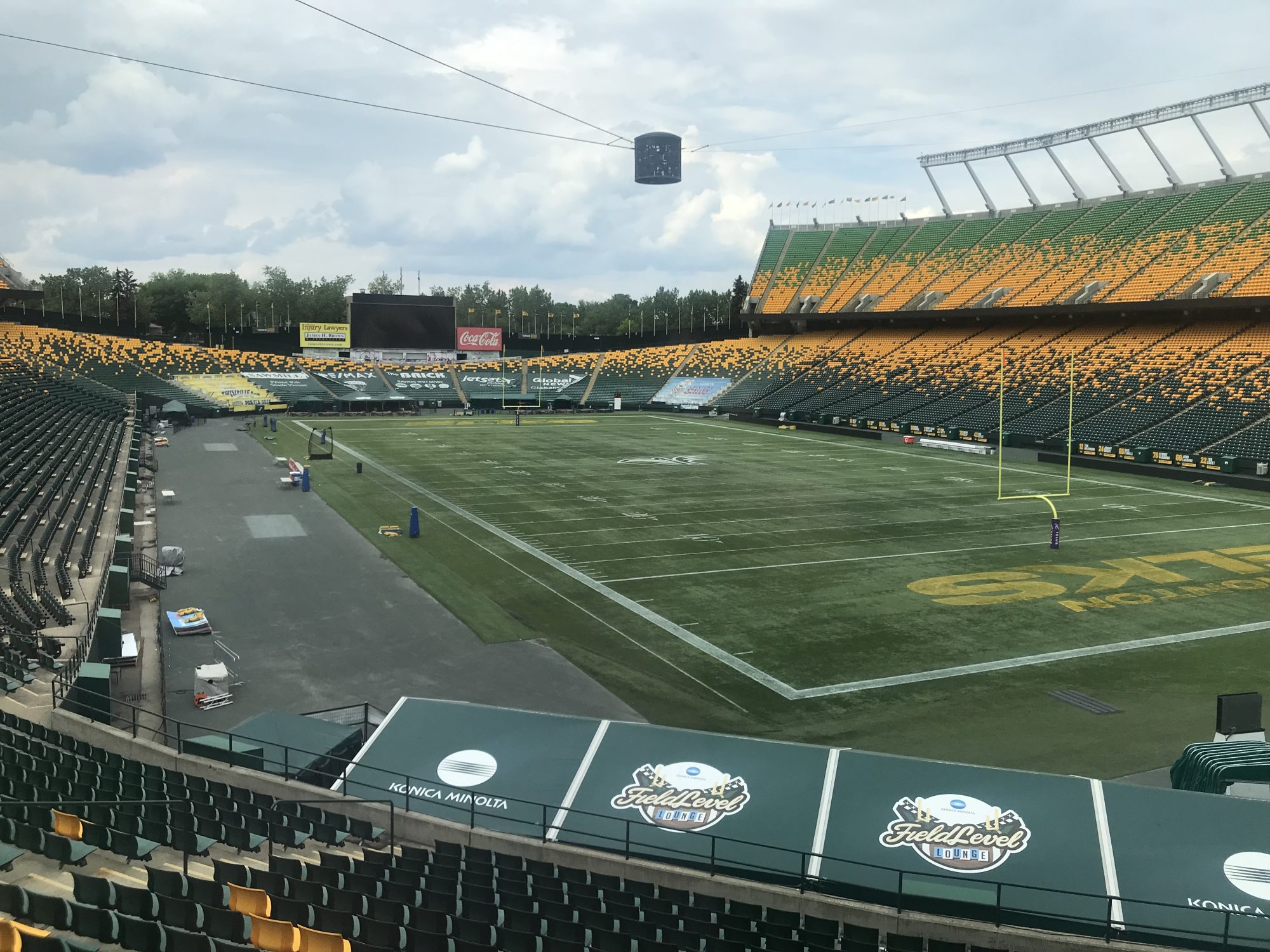What then?
There would have been renovations that had to be made to Commonwealth Stadium. Grass, yes. But there would have been more.
“Mostly, it was about experience for people in the stadium, so they could see everything well, so they could see the game properly.” said City Manager Andre Corbould, as staff had what would be best described as a wake at Commonwealth Stadium. “We were committed to all that. The stadium was good to go.”
But, what would “good to go” have meant? While the Edmonton Elks were supportive of the bid, they would have been impacted. Putting grass into Commonwealth would take time. But renovations would likely have impacted CFL games in seasons to come.
Corbould could only confirm that the Elks’ administrative offices would have had to move out of Commonwealth Stadium “for a while.”
Then. the hue and cry. Construction costs are skyrocketing right now. An estimate from even two weeks ago doesn’t hold water. Contractors in Edmonton are guaranteeing estimates for as little as a week; that’s how volatile the market is. The pricetag to renovate Commonwealth in 2022 would not be the pricetag in 2025. We would have got a lot of debate if this is a wise use of our money. That debate will come to Vancouver and Toronto, places that are even more expensive to do business than Edmonton.
Then, the debate over which city would get Canada’s home games, and be somewhat insured from the risk of getting a batch of early-round games between nations that don’t move the needle when it comes to public interest. Imagine if Canada’s games all went to Vancouver, and we find out that, on top of that, Edmonton’s games don’t feature a European or South American power. Then we wonder if it’s money well spent.
Wait, this totally comes off as sour grapes. Sorry.
Sohi refused to blame the province, saying the conditions from the Tories were “not a roadblock” for the bid.
“We will look at what FIFA was looking for that we were not able to offer, to build on future bids for future events we can apply for,” said Sohi when he spoke to the media.
